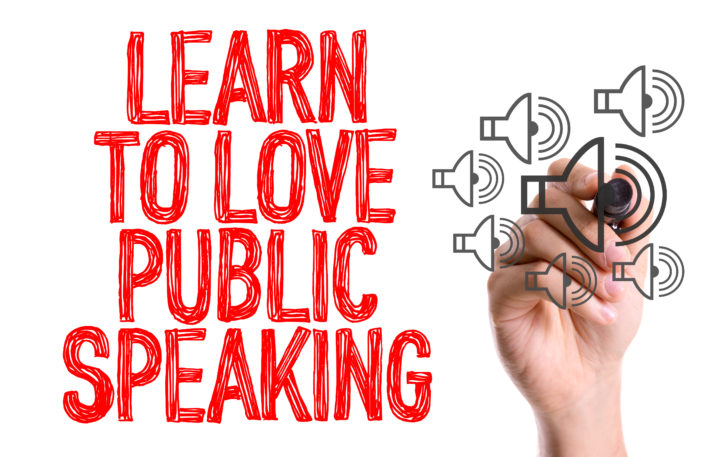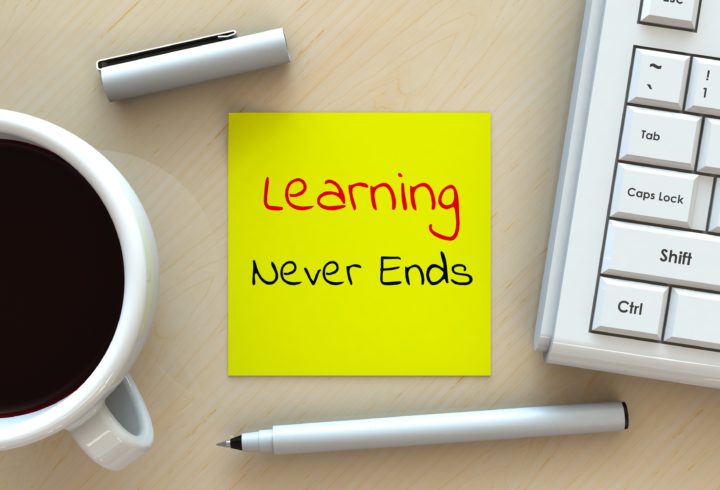You may hate the idea of speaking in front of groups, and there’s nothing wrong with that. A lot of people feel the same way. I used to feel the same way early in my career. But I’m going to explain why you should develop at least some reasonable proficiency in public speaking, even if your work does not require it.
The ability to speak in front of large groups of people is one of the most important skills you can develop to propel your career, even if you don’t do it regularly as part of your job description. That’s because it increases your influence, makes you a better thinker, boosts personal confidence, and makes you a better communicator in other modes as well.
Influence
Public speaking has immediate practical benefits. It gives you more exposure both inside and outside your organization, and you’ll be seen as more of a leader by those who count.
As a knowledge worker, your value is directly dependent on your ability to effectively transfer that knowledge effectively to the relevant stakeholders. Public speaking allows you to transfer that knowledge wholesale to a much wider audience. If you think of yourself and your personal brand as a startup, public speaking is the best way to make your personal influence scalable.
Maybe you’re not that interested in increasing your personal influence for selfish reasons, and that’s very noble of you. But having greater influence helps to advance causes or ideas that you care about. And if you learn the art of communicating your ideas in a way that aligns with the way others think and what they need, others will care about them as well.
Thinking
Beyond practical reasons, public speaking has intrinsic benefits that carry over to other aspects of your work and life. It’s no accident that rhetoric was at the center of education for so many centuries. Very smart people for over two thousand years have known that it is the incubator of leadership skills, because it teaches one to think and to communicate ideas.
When you craft and deliver a speech, you get two valuable forms of feedback that improve your thinking. The first is self-generated, which comes when you prepare. Frequently, we don’t really know if we understand an idea until we try to put it into words that others will understand. It’s called the illusion of understanding; I frequently suffer from it myself. I might read an article that makes perfect sense in my head, but when I try to articulate it out loud or on paper, I realize how shallow and patchy my understanding truly is.
And, knowing others are going to listen critically forces you to find objective support for your ideas, which strengthens your grasp of topics even if you already know them fairly well. Every single time I prepare a presentation, I learn more about the topic than I knew going in.
Second, if your topic is engaging enough to spark questions and discussion, it’s the purest way to evolve and improve your thinking through competition with other sharp minds. In fact, public speaking is a form of deliberate practice, in which you push your communication to the limits of your abilities and then get immediate feedback on your performance.
Confidence
Public speaking is like New York: if you can make it there, you can make it anywhere. When you learn that you can enter a room full of complete and potentially hostile strangers, and win them over to your way of thinking, no job interview or one on one meeting need ever intimidate you again. And, because public speaking is one of—if not the greatest—fears that people have, simply overcoming your pre-speech jitters is great training for so many other challenges in life.
Communicating and Connecting
Finally, public speaking makes you a better and more influential speaker in one on one communication, because you learn to express your thoughts in a listener-friendly fashion that captures their interest and addresses their interests. It makes you a better writer, for the same reason.
It teaches you to think and adapt on your feet, which can make you a better interviewee, a more effective salesperson, and a more persuasive contributor to meetings.
In my own career, I was lucky enough to learn how incredibly useful public speaking can be while I was still in my early 20s, thanks to a friend who shamed me into attending my first Toastmasters meeting. I went with great trepidation, but I found the environment to be so relaxed and supportive that within two or three meetings I had totally changed my attitude and gotten over my fear. Within a few months, the bank where I worked took notice of my abilities, and increasingly had me speak at various functions. In a way, it’s no exaggeration to say that learning to speak in public changed my life.
So, if you have been holding back, I urge you to take that first step. Take a class, hire a coach, join Toastmasters, commit to speak somewhere, so that you don’t have a choice, and just do it. You will be glad you did.






